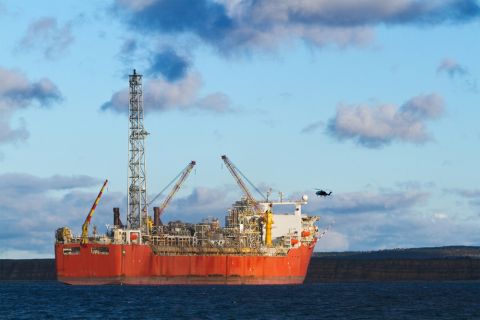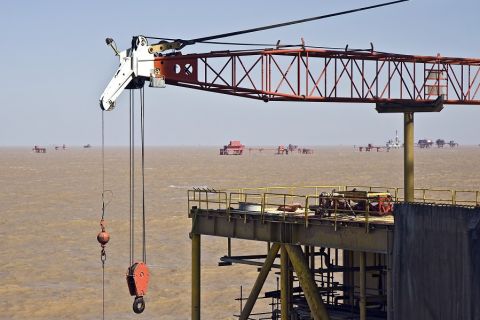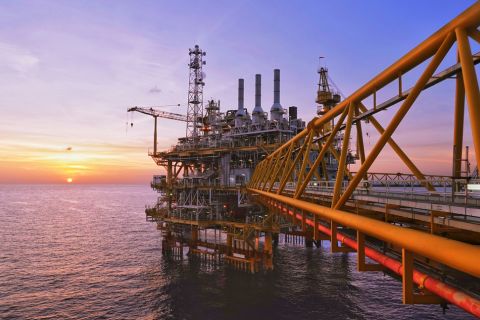
After resolving a maritime boundary dispute with India and Myanmar, Bangladesh is focusing on exploration and development of oil and gas resources in the Bay of Bengal’s shallow and deepwaters.
The country’s energy ministry has lined up a plan to explore hydrocarbon prospects in offshore blocks that were put hold following the boundary dispute and carry out a seismic and geophysical survey over its territorial waters to identify blocks to be offered in the next bidding round.
“International oil companies (IOCs) showed huge interest in the bordering areas of Myanmar and India. So we plan to create six new blocks in the bordering areas by December (this year),” state minister for power and energy Nasrul Hamid told The Independent, a local daily.
An energy ministry official clarified that Bangladesh Oil, Gas and Mineral Corp. (Petrobangla) would offer three deepwater blocks in the eastern part (bordering Myanmar) and another three shallow and deepwater blocks in western border in Bay of Bengal in accordance with the revised production-sharing contract (PSC) model 2014.
The energy ministry has directed Petrobangla to carry out a fresh 2-D seismic survey in its offshore territories in Bay of Bengal, along with geophysical studies, to identify prospective blocks for exploration and development. “An international tender to carry out a nonexclusive multiclient seismic survey in [the] offshore blocks in Bay of Bengal will be floated by December this year,” the official said.
The ministry aims to complete seismic studies in the well-demarcated offshore territories within eight months and launch the new bidding round for the identified blocks by end of 2015.
Dispute settlement
Dhaka is looking at exploring prospects in its offshore areas located between India’s producing Bengal Basin and Myanmar’s Rakhine Basin after settling the maritime boundary dispute with the eastern and western neighbors. The two separate arbitrations under the United Nations Convention on Law of Sea have demarcated the country’s maritime border, resolving ownership issues concerning the offshore territories.
The verdict from the two arbitrations established Bangladesh’s sovereign rights, full or partial, over 16 blocks in the Bay of Bengal on which India and Myanmar claimed.
The Hague-based Permanent Court of Attribution (PCA) awarded Bangladesh an area of 19,467 sq km (7516 sq miles), four-fifths of the total 25,602 sq km (9,885 sq miles) disputed maritime boundary in the Bay of Bengal with India, on July 7, 2014. Bangladesh got full rights to the entire area of four deepwater blocks (DS-10, DS-15, DS-20 and DS-25), 90% of four deepwater blocks (DS-09, DS-14, DS-19 and DS-24) and two shallow-water blocks (SS-01 and SS-05).
The verdict on the maritime boundary dispute with Myanmar by International Tribunal for the Law of the Sea (ITLOS) earlier provided Bangladesh the rights to a large part of six disputed blocks. The verdict awarded 70,000 sq km (27,027 sq miles) of the disputed 80,000 sq km (30,888 sq miles) area in Bay of Bengal to Bangladesh.
The two rulings established Bangladesh’s sovereign rights to more than 118,813 sq km (45,874 sq miles) in the Bay of Bengal comprising 12 nautical miles (22 km) of territorial sea and an exclusive economic zone extending out to 200 nautical miles (370 km) into the high seas. It also granted sovereign rights to the seabed of the continental shelf extending as far as 354 nautical miles (656 km) in the high seas, taking Chittagong coast as the baseline.
The verdicts stated that the south Asian state has “undeniable right to exploit living and nonliving resources over the area and it is free to take any activity to use the resources in any form to the benefit of the nation.”
New PSC Norms
During a recent cabinet meeting, Bangladesh Prime Minister Sheikh Hasina directed the energy ministry to initiate policies that would optimize exploration for oil and gas resources in the Bay of Bengal. She suggested streamlining operational procedures for exploration and development of oil and gas fields, including the PSC norms.
Accordingly, the ministry is revising the PSC model to make the terms and conditions for exploration and development competitive with those of neighboring countries like Myanmar and India. It is working to offer better terms on factors such as wellhead gas price, sale of gas to the third parties, cost recovery limit and tax holiday.
The existing PSC norms, which allow the operator to recover a maximum of 55% of costs per calendar year and sell gas to the third parties after the Petrobangla’s refusal, are not attractive enough to lure the investors. Only three shallow-water blocks of the 12 total blocks (nine shallow and three deepwater) offered were awarded during the previous bidding round, launched in December 2012.
The response to the 2008 bidding round was worse—only two of 28 blocks offered were awarded. The operator of these two deepwater blocks, ConocoPhillips, earlier this month announced that it would exit from the acreages after the mandatory 2-D seismic survey due to low price for the extracted gas.
With the revised PSC terms, the energy ministry is hoping to attract the much-needed investments from global companies to tap the hydrocarbon resources in the Bay of Bengal, which is estimated to have “significant” recoverable oil and gas reserves. Seismic surveys carried out by ConocoPhillips indicate the presence of recoverable hydrocarbons reserves in the DS-10 and DS-11 deepwater blocks.
Bangladesh authorities see development of oil and gas resources in the territorial waters is crucial to avoid an energy crisis in the country. The government warned that the country could face an acute gas crisis within three years if no new significant reserves are found.
Petrobangla currently supplies about 69 MMcm/d (2.3 Bcf/d) of natural gas to help meet a demand of more than 90 MMcm/d (3 Bcf/d). The gas supply shortage is expected to reach 30 MMcm/d (1 Bcf/d) by 2020.
Recommended Reading
TotalEnergies Starts Production at Akpo West Offshore Nigeria
2024-02-07 - Subsea tieback expected to add 14,000 bbl/d of condensate by mid-year, and up to 4 MMcm/d of gas by 2028.
E&P Highlights: Feb. 5, 2024
2024-02-05 - Here’s a roundup of the latest E&P headlines, including an update on Enauta’s Atlanta Phase 1 project.
CNOOC’s Suizhong 36-1/Luda 5-2 Starts Production Offshore China
2024-02-05 - CNOOC plans 118 development wells in the shallow water project in the Bohai Sea — the largest secondary development and adjustment project offshore China.
US Drillers Cut Oil, Gas Rigs for First Time in Three Weeks
2024-02-02 - Baker Hughes said U.S. oil rigs held steady at 499 this week, while gas rigs fell by two to 117.
Equinor Receives Significant Discovery License from C-NLOPB
2024-02-02 - C-NLOPB estimates recoverable reserves from Equinor’s Cambriol discovery at 340 MMbbl.




